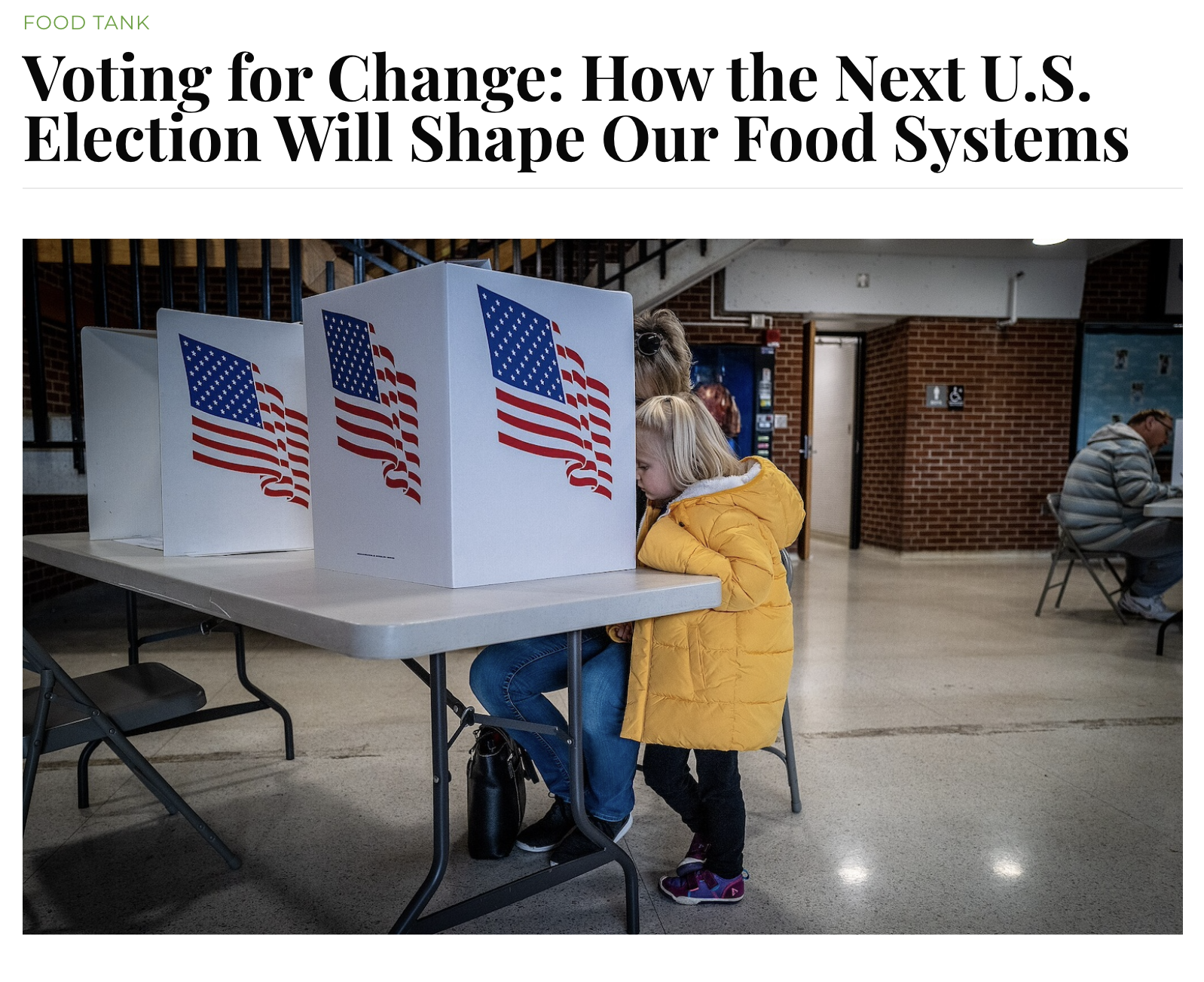Voting for Change: How the Next U.S. Election Will Shape Our Food Systems
Article published by FoodTank
Election Day in the United States is on November 5, and the country needs an administration and a Congress that support regenerative, resilient food and agriculture systems. That requires a movement of citizen eaters: People who vote with their fork and vote with their vote.
“We’ve got some momentum now, but that momentum can be broken,” says author, educator, activist, and the Founder of Third Act Bill McKibben. And that can’t happen. By the time the next U.S. President is sworn into office after this upcoming election, it will be January 2029—just 11 months before the 2030 deadline that has been set to limit global warming. “So, basically,” McKibben continues, November 5 represents the “last election that counts in terms of whether we make things happen at the pace they must.”
And it’s important to remember that Election Day is about more than the President. There are representatives to vote for up and down the ballot who can help build more nourishing, equitable food and agriculture systems.
That’s why we hope you will learn about the candidates and issues on your ballot before heading to the polls if you still need more information. Resources are also available to locate your polling place or request an absentee ballot to vote by mail if it’s not too late in your state.
And on November 2, Food Tank will be in San Diego for a Summit to explore questions about what the election—and the choices we make as advocates, business leaders, farmers, investors, and eaters—mean for our food agriculture systems.
The event, “What’s the Future of the Good Food Movement,” is part of the San Diego Food + Wine Festival and is held in collaboration with KPBS. Learn more about the Summit by clicking HERE, and email Kenzie Wade at Kenzie@FoodTank.com to register.
We’re convening an amazing lineup of luminary experts to help guide us:
Gustavo Arellano, Los Angeles Times;
Jaz Brisack, Inside Organizer School and Starbucks Workers United;
Emily Burgueno, Maat Hetemii, Kumeyaay Diegueno Land Conservancy, CA Agricultural Land Equity Task Force;
Rev. Dr. Christopher Carter, Methodist Theological School;
Julie Coker, San Diego Tourism Authority;
Ken Cook, Environmental Working Group;
Drew Deckman, Deckman’s Restaurant Group;
Elizabeth Falkner, T’MARO Brands;
Touré Folkes, Turning Tables;
Clare Fox, Sustainable Agriculture and Food Systems Funders;
Jennifer Gilmore, Kitchens For Good;
Todd Gloria, San Diego Mayor;
Bob Kamensky, Feeding San Diego;
Deanna Mackey, KPBS;
Anne McBride, The James Beard Foundation;
Mawa McQueen, McQueen Hospitality;
Michelle Metter, San Diego Food + Wine;
Diane Moss, Project New Village;
Cassandra Shaeg, KPBS ; Chef
Alice Waters, Chez Panisse and bestselling author; and
Lori Weisberg, San Diego Union-Tribune
You can also read more about what the upcoming election means for the country’s food and agriculture systems in a new piece on Forbes by clicking HERE.
Photo courtesy of Phil Roeder, Wikimedia Commons

